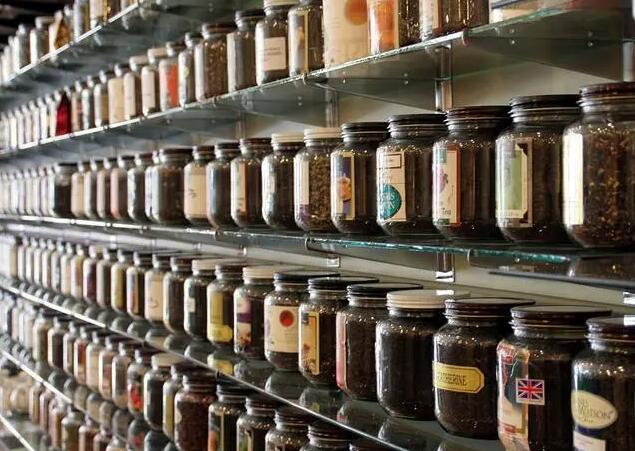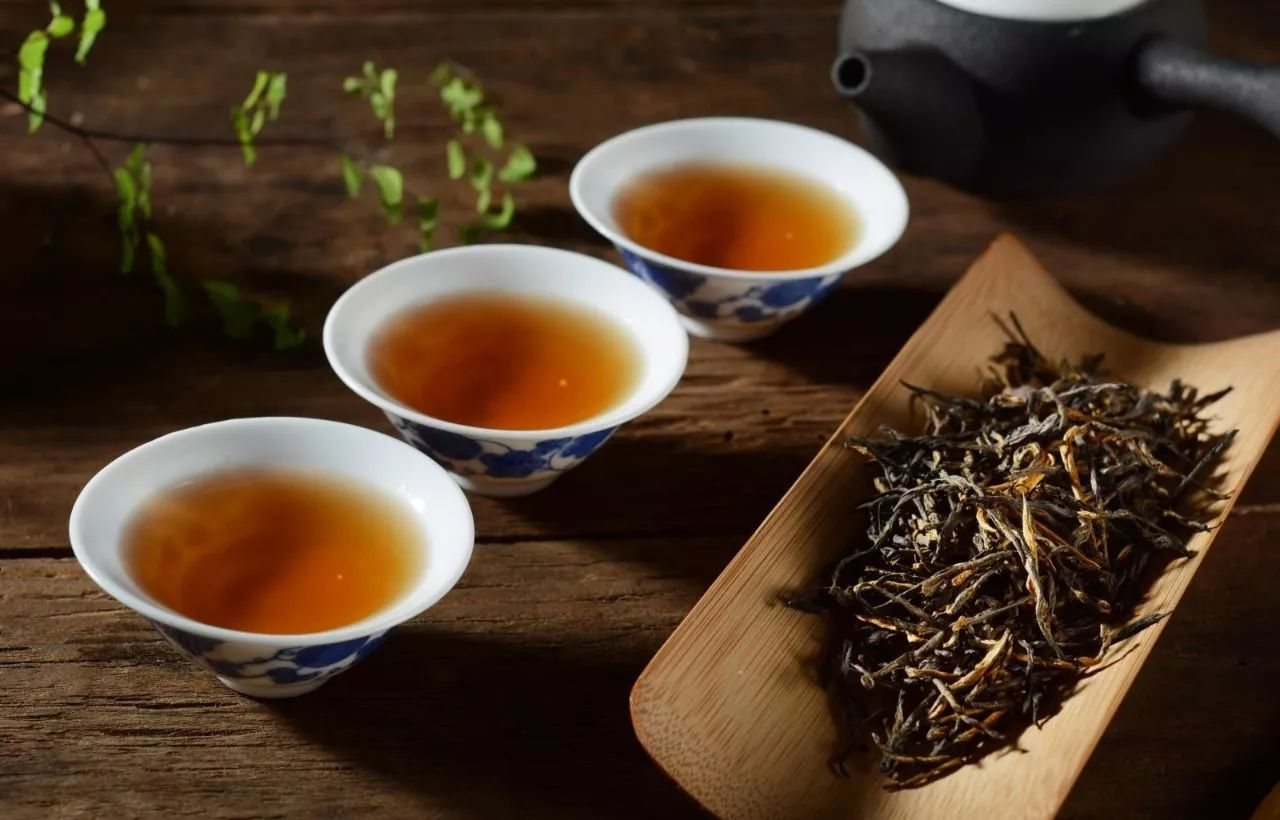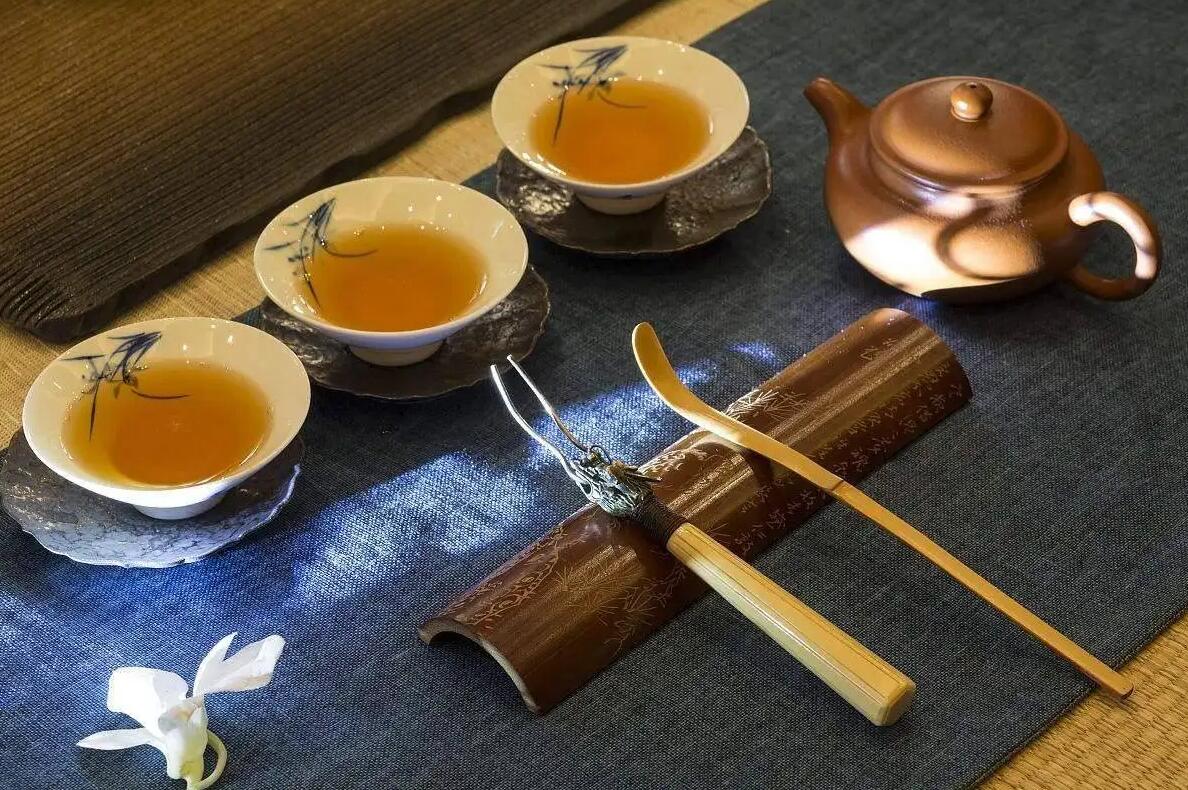"The personages examine water well and the masters fancy tea competition", Brewing tea and examining the water is One Of the features of the Chinese Tea Ceremony. The Japanese and Taiwan Tea Ceremony do not consider that much about the water examination because their geography and lacks of natural resources. Since Lu Yu, the Chinese Tea Ceremony emphasis the water examination and its affect on the spirit.
People before divided the tea suitable waters into heaven waters and earth waters. The heaven waters are also called "rootless water", which refer to waters from rain, snow, frost, dew and hail. The earth waters refer to waters from spring, river, lake and well. People in Ancient times devoted a lot to collect all kinds of water, but not just for the suitable water or tea, also only this precious water can produce the special taste of the tea leaves and creat the lofty atmosphere. It has been emphasized for a long time that Water is the "mother of tea", which the aroma of tea and the spirit of the tea ceremony could be explained out by the nice water.
The ancient drinkers experienced three phases to know the tea water, which includes the grades emphasized in Tang Dynasty, the experience emphasized in Song Dynasty and the theory emphasized in Ming Dynasty. Lu Yu firstly defined the tea suitable water, he said "spring water from mountains is the best, river water is the second, well water is the last." He graded all the water in the world in to 20 degrees, which he put the Lu Mountain valley-curtain spring water on the top, the Wuxi Huishan Temple stone spring water the second, and so on.
In the Song Dynasty, Emperor Song Huizong, Zhao Ji wrote in Perspectives on Tea that "clear, light, sweet and cool water is the best, because light and cool are the natural features of water which is not easy to get". This nation lost emperor "indeed was talented, he brilliantly summarised the the criteria of tea suitable water, brought the concepts of "beautiful" and "natural" into the water examination, sublimed the cultural connotation of water examination for tea brewing.
In the Ming Dynasty, the water examination became more systematic and theoretic. Zhang Yuan wrote in Tea Notes that "tea is the spirit of water, water is the body of tea,only real water could show the spirit, only good tea could see the face". Xu Cishu wrote in Tea Supplements that a "nice tea is aromatic, give out the smell through water, it is impossible to talk about tea without water". Zhang Dafu wrote in his book that "Tea character is revealed through water, level eight tea could completely interpreted by level ten water, but level ten tea could only be interpreted 80% by level eight water". These above all emphasize the importance of water.
What water is suitable for tea then? People in the Ming Dynasty have a series of standards as well. Which are: clear, light, sweet, alive, cool.
First, the water must be of a clear quality. Clear quality, colorless, transparent,no deposits,only this could reveal the temper of tea. Hence clear water is called "spiritual tea suitable water".
The second, water capacity must be light. A nameless writer said in Tea Basket that "in order to verify the quality of water, take a tank and weigh it, the lighter the better". Modern scientists prove that lighter water contains less minerals, which would not affect that much the flavour of tea. Especially the Magnesium and Iron minerals in water would make tea tastes bitter. That is why lighter water is better.
The third, water flavour should be sweet. Tian Yiheng wrote in Boilling Spring Water and Savoring Tea that "sweet, that is beautiful, aromatic, good smell. "Only sweet and aromatic spring water could be good to human body". Interpreted into modem language, this means nice water would taste sweet immediately after drinking it, which would naturally enhance the flavour of tea.
The fourth, the water source must be alive. "Flowing water does not rot, a doorhinge never be worm-eaten", people in the Ming Dynasty thought it is unhealthy to drink the water from a dead source. Modem scientists prove that it is not easy for germs to breed in an alive water, and also, there are a high rate of oxygen and Carbon dioxide air contained in alive water, which is good for tea brewing.
The fifth, water must be cool. Tea drinkers in the Ming Dynasty thought, "It is not hard to find a clear spring, but it is hard to find a cool spring." Cool water makes the full taste of tea . The cool water is mostly from deep earth and not polluted, hence it is really good for tea brewing.
These views comprise completely from just experiences but so accurately point out the Tea Ceremonies requirements on water, these standards are still used nowadays.
In sky water, well water, river water, lake water and spring water, tea drinkers have a special feeling for spring water, not only because of its features of dear, light, sweet, cool and alive, but also its background and its flowing and falling would inspire people's imagination. The spring water could add more mysterious, wild, charmingless and rhyme feeling for tea drinking. Looking for springs is such an attractive chapter for tea drinkers in the Chinese Tea Ceremony.
Spring, is the natural head of the hidden water from underneath. There are lots of springs scattered on this country's vast land. The most popular ones are as followed. "Number one spring in the world", "Number two spring in the world" and the other four "number three spring in the world".
The Number one spring(s) in the world is "the Lu Mountain King Kang's Valley-Curtain Spring", first spring in the heart of the Yangzhi River" also called "Zheng River Zhongling Spring", "Nanling Spring" or "Zhongru Water", "Jade Springe-throned by emperor Qianlong, located in Beijing, west of the summer palace south of the Yuquan mountain, famous for its jade color. "The first Spring" in Shandong Jinan near the Daming lake and The Immortal Water First Spring", which is also called "Jade Water" because of the water quality.
If it is hard to say which one is the first spring in the world, we just have one "Number Two",that is "the Wuxi Hui Mountain Spring", which is generally recognized and recommended by Lu Yu and Liu Bochu, and also famous for that well-known music Double Spring Reflecting the Moon by a blind musician called A Bing.
Beside this, there are four famous "The third spring in the world":Hangzhou Tiger Running Spring, "Hangzhou Dragon Well Spring", Fuzhou Huqiu Temple Stone Spring" and "Jinan Pearl Spring". "Dragon Well Tea, Tiger Running Spring" is called the double precious on the West Lake. "Hangzhou Dragon Well Spring" is located in Hangzhou's Phoenix Hill, its original name was "Longhong Spring" and "Longqiu". "Suzhou Huqiu Temple Stone Spring" is also called "Guanyin Spring". Emperor Qian long ranked the springs according to the proportional weight of water, throned that Beijing jade spring as "the number one", Wuxi Hui mountain spring as "The second" and the Shandong Pearl Spring as "The third".
Spring is not just a beautiful natural scenery of our nation, but also an excellent and perpetual accompany in the tea culture. It is a spiritual life water which moistening the tea drinkers' hearts. It is the symbol of tea drinkers' pursuit of pure personality, hence the Chinese Tea Ceremony emphasizes the looking for nice springs.



